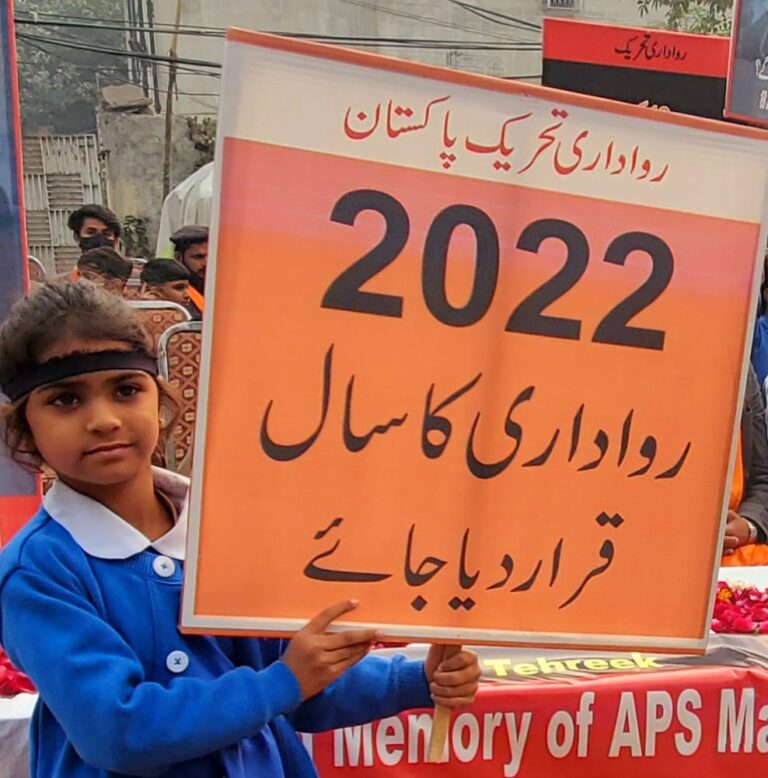
Women, religious minorities and transgender persons continue to face violence, discrimination and persecution in Pakistan with authorities failing to provide adequate protection or hold perpetrators to account, the Human Rights Watch (HRW) has said in its World Report 2022.
The 32nd annual world report by the international human rights group, which summarises human rights conditions in over 100 countries and territories in 2021, also noted that the Pakistani government intensified its efforts to control the media and curtail dissent.
“The government continues to do little to hold law enforcement agencies accountable for torture and other serious abuses,” it stated, adding that the Pakistani state also “did little to stop” marriages of underage minority girls in 2021.
“Child marriage remains a serious problem in Pakistan, with 18 per cent of girls marrying before age 18, and 4 percent marrying before 15. Women from religious minority communities remain particularly vulnerable to forced marriage.”
Pakistan ranked 153 out of 156 nations on the Global Gender Gap 2021 index issued by the World Economic Forum, it said.
According to a Pakistani human rights organisation, the Centre for Social Justice, at least 1,855 people were charged under Pakistan’s blasphemy laws between 1987 and February 2021, the report said.
On June 4, the Lahore High Court (LHC) acquitted a Christian couple, Shafqat Emmanuel and Shagufta Kausar, of blasphemy after spending seven years on death row. The couple was convicted in 2014 of sending “blasphemous” texts to a cleric.
The report also mentioned the case of an 8-year-old Hindu boy in Rahim Yar Khan, who in August became the youngest person to ever be charged with blasphemy in Pakistan after being accused of defiling a carpet at a religious seminary.
Following his release on bail, a mob attacked a Hindu temple, causing damage, among other incidents of violence against minorities in Pakistan.
SITUATION IN AFGHANISTAN
The New York-based human rights group also highlighted increasing attacks on women and minorities in neighboring Afghanistan and India.
In September, the Taliban eliminated the Ministry for Women’s Affairs and repurposed its building as the Ministry for the Propagation of Virtue and Prevention of Vice, an institution mandated to enforce rules on citizens’ behavior, including how women dress, and when or whether women can move outside the home unaccompanied by a male relative.
“Women and children comprised nearly half of all civilian casualties. In the weeks after the Taliban takeover, Taliban authorities announced a steady stream of policies and regulations rolling back women’s and girls’ rights,” stated HRW.
“These included measures severely curtailing access to employment and education and restricting the right to peaceful assembly. The Taliban also searched out high-profile women and denied them freedom of movement outside their homes.”
“Some secondary schools for girls subsequently reopened in a few provinces, but as of October the vast majority remained shut. A lack of female teachers, especially in higher education, likely means this policy will lead to de facto denial of access to education for many girls and women.”
ABUSES IN INDIA
According to World Report 2022, the Indian government adopted laws and policies that discriminated against religious minorities, especially Muslims.
“Hindu mobs beat up Muslims, often working-class men, with impunity while pro-BJP supporters filed baseless complaints against critics, especially religious minorities. Several states enacted or amended laws ostensibly to prevent forced religious conversions, but these laws have been largely used to target minority communities, particularly Christians, Muslims, Dalits, and Adivasis,” it stated.
“The government adopted laws and policies that discriminated against religious minorities, especially Muslims. This, coupled with the vilification of Muslims by some BJP leaders and police failure to take action against BJP supporters who commit violence, emboldened Hindu nationalist groups to attack Muslims and government critics with impunity.”
In October, over 200 men and women allegedly belonging to Bharatiya Janata Party BJP youth wing and affiliated Hindu nationalist groups Vishwa Hindu Parishad (VHP) and Bajrang Dal attacked a church in Uttarakhand state, vandalizing property and injuring several churchgoers.
The attack came soon after the VHP allegedly threatened to demolish churches in Madhya Pradesh state’s Jhabua district, claiming they were doing illegal religious conversions. Hindu nationalist groups also attacked churches in Chhattisgarh state.
In January, a Muslim stand-up comic, Munawar Faruqui, and five of his associates were arrested on a complaint brought by the son of a BJP politician who accused him of hurting Hindu sentiments as a joke Faruqui apparently did not utter. Police subsequently admitted they had no evidence of the performance.